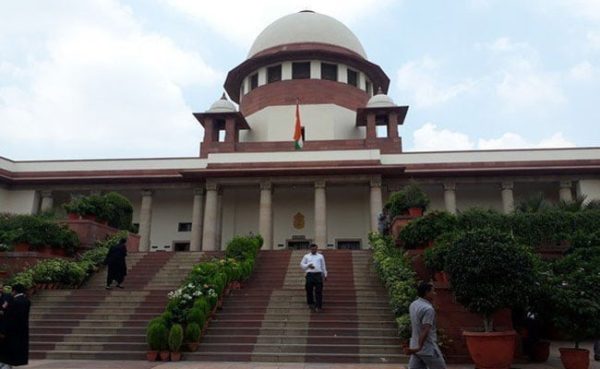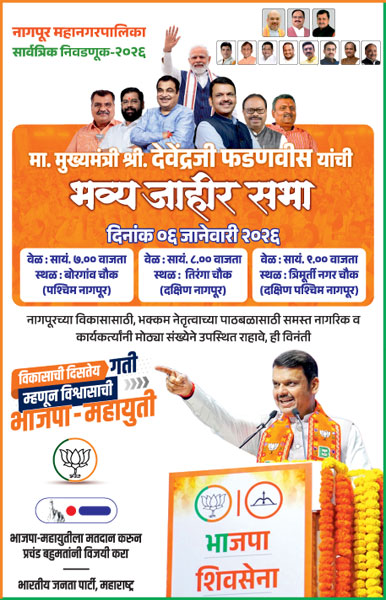
The special Court, Prevention of corruption act, Shri V M Vaidya acquitted the accused Laxman Kendre for the offences punishable Under Sections 7, 13(1) (D) R/w. sec 13(2) of the Prevention from Corruption Act, 1988.
The prosecution case in a nutshell was that the complainant Sheikh Raheman had lodged a complaint on 02/07/2015 with the Anti Corruption Bureau, Nagpur alleging that his son Sheikh Shahrukh Sheikh Raheman had eloped with a girl and that thereupon his son came to be arrested on 28/06/2015 and was sent to police custody remand for 10 days. The complainant in his complaint alleged that on 01/07/2015, when the complainant along with his nephew had visited the Police Station to meet his son, the accused i.e. Assistant Police Inspector Laxman Kendre met them and told them that he would not beat his son in the course of police custody remand and when the police custody remand would get over on 08/07/2015 and thereafter his son would go to Central Jail, the accused would help the complainant to get his son bailed out within a month and that for favoring the complainant, the accused demanded Rs. 1,50,000/- from the complainant and demanded the complainant to bring the said amount at 3 o’clock on 02/07/2015. The complainant was not ready to pay the bribe amount and as such he approached the Anti Corruption Bureau, Nagpur and lodged the complaint narrating the aforesaid facts.
The prosecution has led evidence on the point of verification proceedings and subsequent proceedings and the prosecution claimed that after the alleged demand was verified the complainant in the presence of the Panch No.1 and Sheikh Irfan i.e. the complainant’s nephew had handed over the tainted currency notes to the accused in his car. The tainted currency notes were put inside an envelope when they handed it to the accused and the complainant claimed to have kept it in front of the gearbox in the car of the accused after the accused demanded the same. The prosecution versions is that, thereafter the complainant gave the pre determined signal to the trap team who were waiting in the vicinity, who thereafter opened the door of the car and took out the currency notes from the front of the gearbox of the car and the ultra violet lamp was subjected there and blue colour mark was seen. Similarly the hands of the accused were also subjected to ultra violet lamp and the left palm and tips of fingers of the accused demonstrated blue marks. The investigating team claimed to have seized various articles including the tainted notes and after completing the formalities and after obtaining the reports from the forensic lab lodged prosecution against the accused on obtaining the necessary sanction therefor.
The learned Advocate Prakash Naidu for the accused strenuously argued and submitted that the evidence on record is visibly and prima facie deficient to prove the demand, receipt and recovery of any amount of illegal gratification as alleged and thus as the mandatory ingredients of the offence with which the accused had been charged have remained unproved. Without in any manner conceding to the charge of receipt or recovery of the alleged tainted amount of Rs. 1,00,000/- as per the allegations of the prosecution’s case, it was argued that in the absence of any proof of demand the entire proceeding is vitiated and that the demand has to be proved in clear bold terms failing which no presumption can be drawn against the accused. It was argued that demand of illegal gratification is a sine qua non to constitute the said offence under section 7 of the Act, and unless it is proved beyond all reasonable doubts that the accused voluntarily accepted the money knowing it to be bribe, no aspect of any presumption can be raised adverse to the interest of the accused and the entire proceedings stand vitiated even if tainted notes are recovered from the accused without there being any demand being proved. It was argued that initial burden of proving that the accused demanded and in pursuance of the said demand, accepted and obtained the amount other than legal remuneration is upon the prosecution and it is only when the prosecution succeeds in proving that the demand at the hands of the accused has been proved it is then that the burden of rebutting the presumption shifts upon the accused and the accused would be required to shred of the theory of presumption as contemplated under the act
The Court held that on an overall appreciation of evidence on record, in the context of elucidation of law pertaining to proof of the ingredients of sec. 7 and sec. 13 of the P.C. Act, as adverted to herein above, the Honble court was of the considered opinion that in view of absence of proof of demand, as has been held by the Hon’ble Apex Court in the cited judgments supra, the theory of rebutting the presumption is ruled out as the prosecution had miserably failed to prove the initial demand and without the basic aspect having been proved, any further proceedings was futile to the prosecution. Appreciating the evidence and arguments on record, the Special Judge V M Vaidya acquitted the accused. Adv Prakash Naidu assisted by Adv Pankaj Thakre, Homesh Chavhan, Rahul Rathe, Surabhi Godbole, Mitesh Baid represented the accused. Abhay Jikar represented the state.













